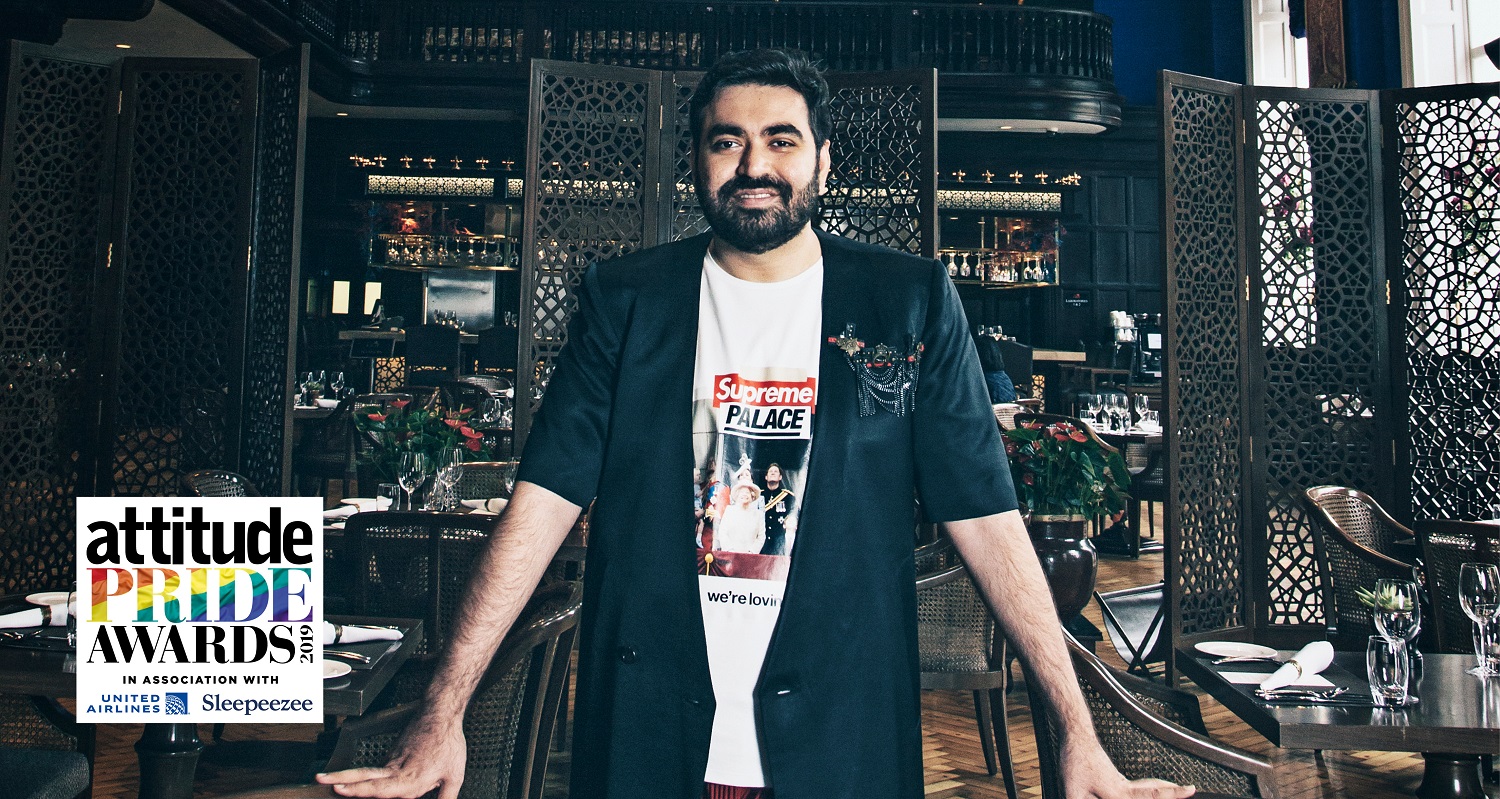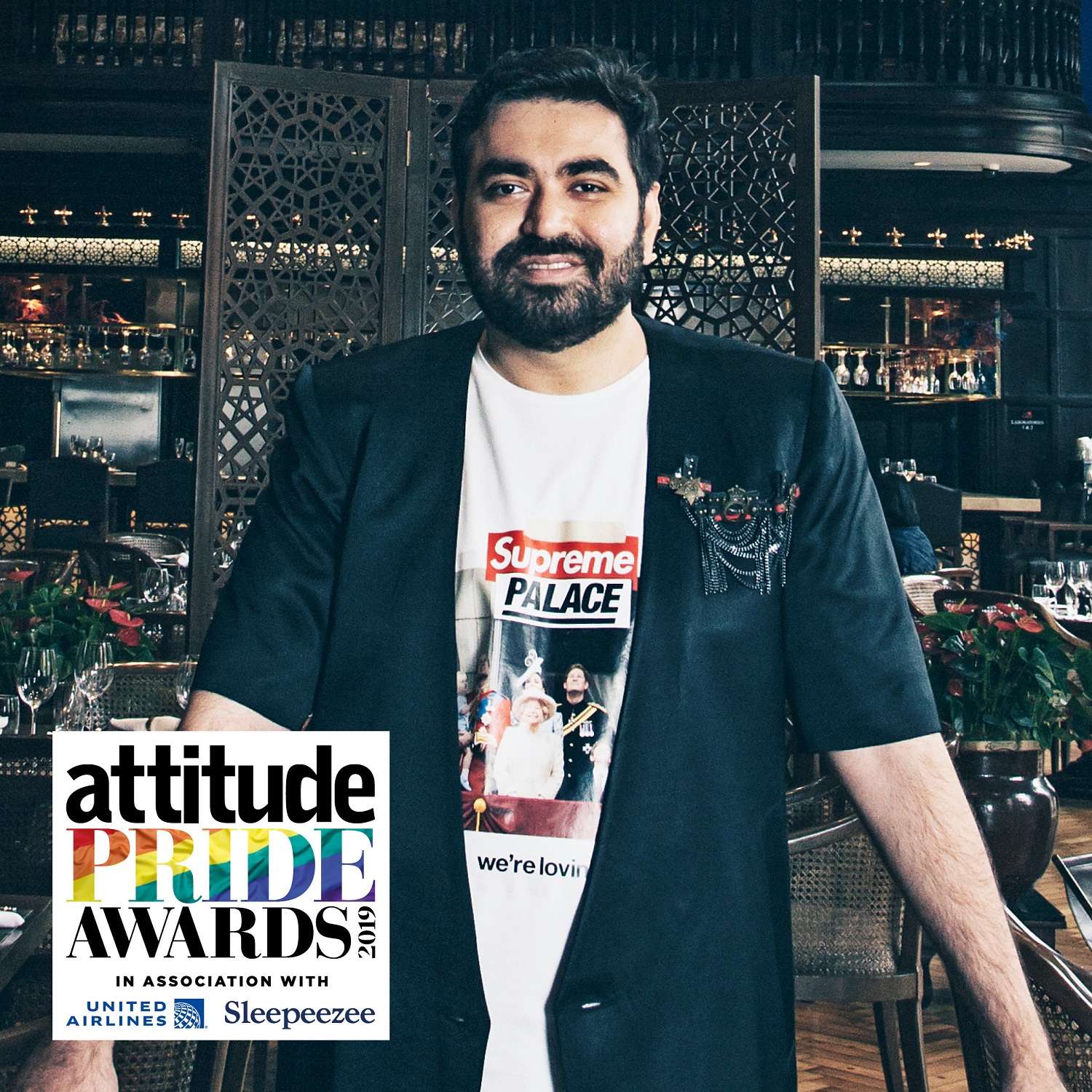Attitude Pride Awards: The hotelier at the forefront of the battle to decriminalise homosexuality in India
Keshav Suri one of several whose writ petitions brought India’s LGBTQ community their freedom last year.
By Steve Brown

In September last year, history was made and millions rejoiced as India’s Supreme Court finally decriminalised homosexuality by ruling section 377 of the penal code unconstitutional.
The verdict, predicted to directly affect more than 100 million people (estimates suggest that eight per cent of India’s population may be LGBTQ), concludes a long battle against homophobia.
Present in the courtroom was hotelier Keshav Suri, one of several whose writ petitions had brought India’s LGBTQ community to freedom.
“I went in with a sense of ‘We’ve won’,” he tells Attitude. “I was internally screaming ‘Yass!’ I wanted to do backflips and the splits and I wanted to kiss the judges.
“It was the biggest vindication. We were in tears. It’s not something you can put into words, it still gives me goosebumps and makes me want to cry because it’s something that was so expected yet so unexpected.”
The only son of politician and hotelier Lalit Suri, Keshav was born and grew up in Delhi, before moving to the UK to study at Warwick University, and later King’s College London and SOAS.
“I did it out of pressure to fit in, it was almost a mini India at Warwick. A lot of people knew about my family and I thought, ‘OK, maybe I’ll do this to make my family happy’.” But playing straight wasn’t sustainable and while completing his masters degree at King’s, he decided to come out.

His macho, traditional father took time to digest the news. “I didn’t have enough time because a year later he passed away,” says Keshav. “I blamed myself for a long time, that maybe it was because his heir apparent, is gay. I blamed myself until I met my husband.”
He met Frenchman Cyril 12 years ago, and they married in Paris last summer. The union is not recognised in India, something else they hope will change one day.
Following his father’s death, Keshav’s mother gave him control of a space in the New Delhi hotel. “It was her way to let me know she accepted me,” he says.
With that space, Keshav launched nightclub Kitty Su in 2011, an inclusive space for people of all sexualities and genders. “You’ll see everybody from the rainbow spectrum,” he says. “We had Violet Chachki perform, and 1,900 people turned up. We employ trans people and drag artists, differently abled people and acid-atack survivors.”
Despite section 377’s long history, it was rarely used to jail people. However, Keshav asserts that it was a symbol of the state’s intolerance and became a significant tool for harassment by the police, sometimes used as a threat to be able to rape and extort LGBTQ people.
“I never felt like a criminal because I didn’t feel I was doing anything wrong,” says Keshav when asked how life has changed since September.
“It’s nice to know that we can’t be arrested for just loving who we love. I don’t have the threat that someone can come to my house, where I’ve lived with my husband for 12 years, and arrest me.
“A huge burden has been lifted.”
Listen to Keshav’s story below:
